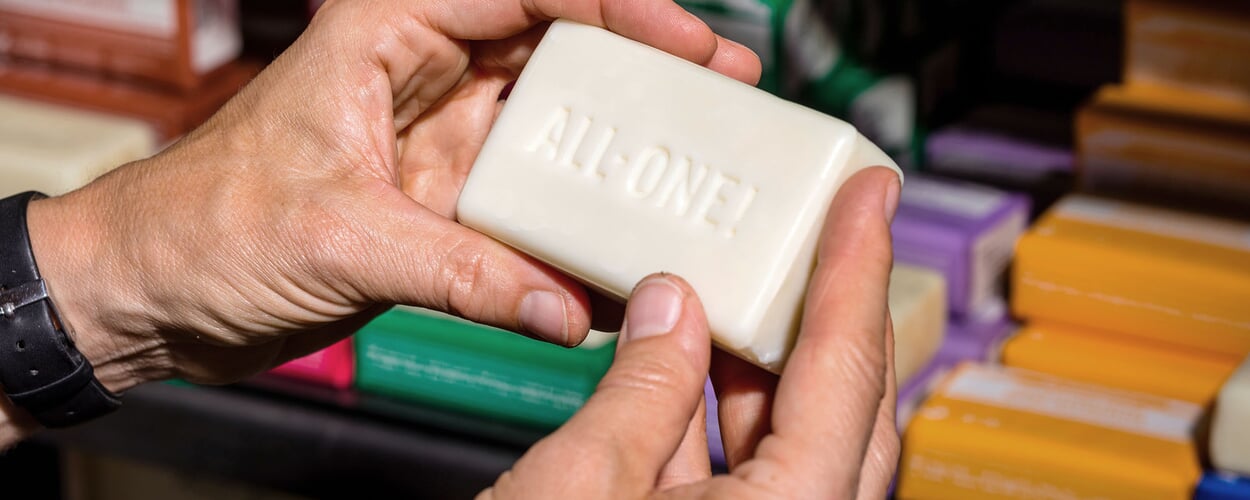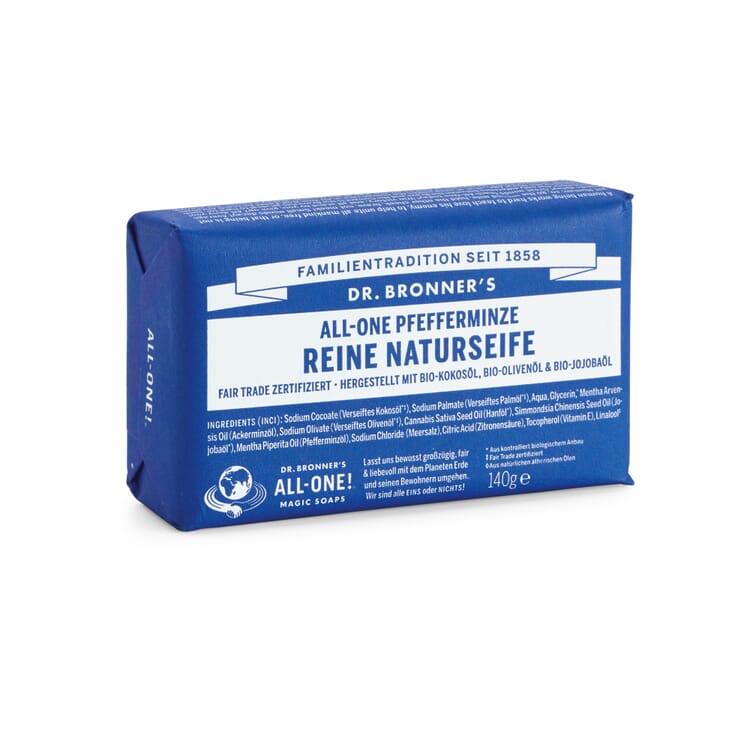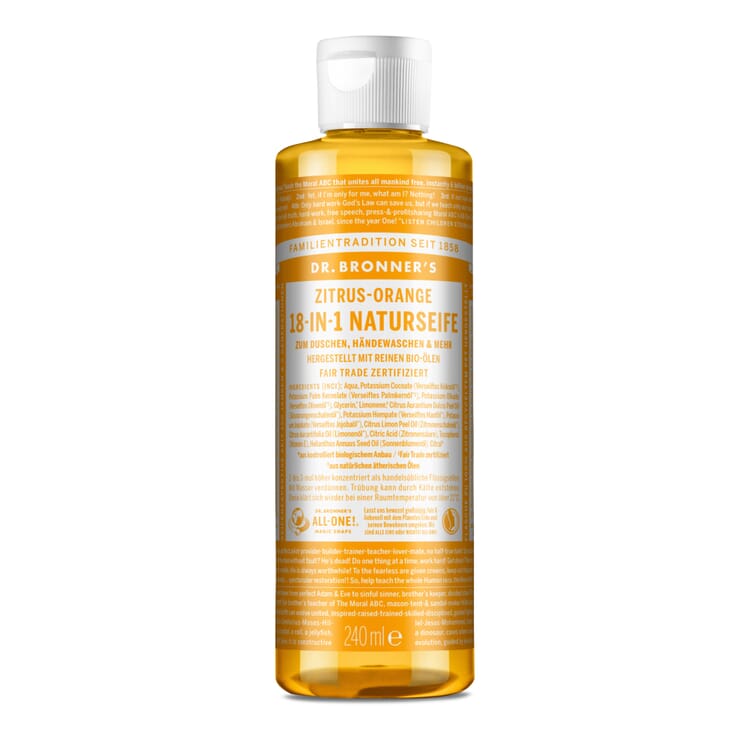Manufacturer
Dr. Bronner’s Soap manufacture. Natural soaps from pure vegetable raw materials
When the young German soapmaker Emanuel Bronner emigrated to the USA in 1929, he probably never dreamed that the company he founded 20 years later would one day produce the country's most popular natural soaps. For at first, he traveled the country for many years, not only to sell his soaps, but also to spread his pacifist worldview at lectures. Under the impression of the two world wars, tolerance and peaceful coexistence of people were a matter of concern to him, but also the respectful and responsible treatment of nature - still extremely unusual for that time. An expression of this were his soaps, which he produced exclusively on the basis of natural, environmentally friendly raw materials and ingredients, which were thus of outstanding quality and at the same time formed a counterbalance to the modern, petrochemically based cosmetics. The fact that Emanuel Bronner's soaps were quickly more successful than his lectures, at which he also distributed them, shows that he was ahead of his time and spot on. Without further ado, he printed his messages directly on the labels, where they can still be found today. We cannot say with certainty what exactly made Dr. Bronner’s a cult in the USA, but we can say that the quality of the products convinced us completely. In the family-run soap factory, they are made from purely vegetable raw materials, most of which come from sustainable organic cultivation and are Fairtrade-certified. All products and ingredients are completely biodegradable, so they are ecologically compatible right down the line and are thus in the best Bronner tradition. Dr. Bronner’s largely dispenses with outer packaging (which is why the font on the labels is quite small, so that many messages can fit on them).













